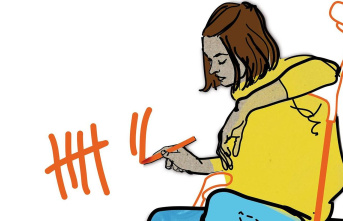The Minister of the Presidency, Félix Bolaños, yesterday declared the crisis with the Generalitat of Catalonia over the Pegasus case closed and over. He did so at a press conference in La Moncloa late in the afternoon, after having met for 120 minutes with his counterpart from the Catalan Government, Laura Vilagrà. “It was a cordial, sincere and constructive meeting. With this meeting, we resume the political and institutional relations between both governments, which had been affected by recent information », Bolaños proclaimed at the beginning of his speech, alluding in a veiled way to the listening to pro-independence leaders, including Pere Aragonès. However, during question time, and given that Vilagrà, who appeared at the same time in the Blanquerna bookstore in Madrid (expressly avoiding doing so in the presidential precinct, in an already habitual gesture on the part of nationalism) gave a different version, Bolaños had to admit that the distance is still a long way off and that his explanations about Pegasus are still not convincing the Catalan Executive.
The intervention of the Catalan counselor left little room for doubt that her demands for maximums are far from being overturned. There is no thaw, in short, although the independence movement seizes the Executive of Pedro Sánchez as the lesser evil. “There are no reasons to talk about a thawing or normalization [of relations],” said Vilagrà, who insisted that in order for progress to be made, measures must be specified to “end the repression” of the independentistas.
He did not specify more, but he did point out that the Government's steps should go in the direction of modifying the Penal Code to decriminalize sedition and rebellion, reform the Court of Accounts so that it cannot act as it has to date, stop the new judicial processes that implicate the independentistas and put an end to the European orders that affect those who escaped from the 'procés'. Some steps that, according to him, will bear fruit shortly: "I hope there will be results in weeks and then we can open another stage."
With these demands on the table, Bolaños insisted on talking about a situation "very different from that of 2018" that will allow, he said, to lay the foundations for "the reunion of Catalonia with the rest of Spain and also the reunion between Catalans of different sensitivities ». To do this, he broke down data on the increase in investments in Catalonia in 2022 which, he announced, will be consolidated in next year's Budgets. And he reported that both administrations are already working on balancing the agendas of Sánchez and Aragonés for an upcoming bilateral meeting, to be held before the summer. Also in the way of resuming the dialogue table, and even in specifying its "methodology", despite the fact that it was agreed for the investiture, in January 2020, and the legislature has already passed its halfway point.
Bolaños did not hide that "we have verified discrepancies with the matter derived from the information that appeared in the 'New Yorker,'" he admitted in reference to the report by the Citizen Lab organization that spoke of up to sixty separatist leaders being spied on. However, the National Intelligence Center (CNI) only accredited about twenty, and all with judicial authorization, in the appearance made by the former director of the Center, Paz Esteban, before the official secrets commission of Congress.
Government sources familiar with the meeting affirm that this report was discussed – which Sánchez himself came to partially question in his parliamentary appearance on the case – but they assure that there was no tension. "We have heard a lot about this" they say colloquially. On this matter, Bolaños once again sent the message to the Generalitat that the central government will declassify documents before "any request made to us by a court." In short, the minister reported that "the Government of Spain has made progress, but they are not satisfied."
Aragonès is trapped in the Pegasus case. He is one of those directly affected and Junts, which is part of his government, constantly presses on this issue to destroy any rapprochement between governments. Yesterday, before the Bolaños-Vilagrà meeting, Jordi Turull, brand new number two of Junts and one of the winners of Sánchez's pardons, criticized the meeting because, from his point of view, it only serves to "whitewash" the President of the Government and the espionage to the independentistas.
Given this, Vilagrà reiterated the need to build bridges again based on the recovery of the Catalan Government's confidence in the Government. The counselor insisted that it is essential that the improvement in relations be translated into facts; that is, in "guarantees that generate a minimum trust", because "without trust, there is no possible relationship" and now these "minimum conditions do not exist", she said. Although in this aspect she did not specify either, the Catalan minister reproached the Government for Pegasus's management, which she describes as "repression", but did not limit what she expects from the Executive, once the independence movement already obtained the head of the director of the CNI and the inclusion of its allied groups, notably Bildu, in the official secrets commission.
Thus, from the Generalitat, despite the difficulty of agreeing on specific measures that meet the objectives of the nationalists, Vilagrà pointed out that this Wednesday's meeting should serve to give "a new opportunity for politics and the negotiation process, which is the best way to resolve the political conflict.
And he insisted, finally, that the independentists will never give up "the democratic path" to solve "the political problem", which must conclude, yes, with the holding of an independence referendum. Laura Vilagrà concluded with a message to the Executive: «Repression is incompatible with political negotiation. The decision is on your roof.












